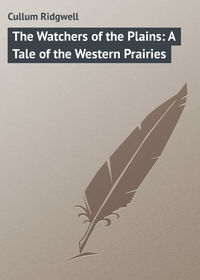 полная версия
полная версияThe Night Riders: A Romance of Early Montana
Julian Marbolt had not left his bedroom when they arrived at the house. Diane, looking a little anxious when she saw these two together, showed them into her father’s office. She was half disposed to refuse Jake’s request that she should summon the blind man, but a smiling nod from Tresler decided her.
“Very well, Jake,” she replied coldly. “You won’t best please father unless the matter is important.” This was said merely to conceal her real knowledge of the object of the visit.
If Jake understood he gave no sign. But he had seen and resented the silent assurance Tresler had given her. His angry eyes watched her as she went off; and as she disappeared he turned to his companion, who had seated himself by the window.
“Guess you ain’t figgered on the ‘old man’ ’bout her?” he said.
“That, I think, is strictly my affair,” Tresler replied coldly.
Jake laughed, and sat down near the door. The answer had no effect on him.
“Say, I guess you ain’t never had a cyclone hit you?” he asked maliciously. “It’ll be interestin’ to see when you tell him. Maybe – ”
Whatever he was about to say was cut short by the approach of the rancher. And it was wonderful the change that came over the man as he sat listening to the tap-tap of the blind man’s stick in the passage. He watched the door uneasily, and there was a short breathless attention about him. Tresler, watching, could not help thinking of the approach of some Eastern potentate, with his waiting courtiers and subjects rubbing their faces in the dust lest his wrath should be visited upon them. He admitted that Jake’s attitude just now was his true one.
At the door Julian Marbolt stood for a moment, doing by means of his wonderful hearing what his eyes failed to do for him. And the marvel of it was that he faced accurately, first toward Tresler, then toward Jake. He stood like some tall, ascetic, gray-headed priest, garbed in a dressing-gown that needed but little imagination to convert into a cassock. And the picture of benevolence he made was only marred by the staring of his dreadful eyes.
“Well, Jake?” he said, in subdued, gentle tones. “What trouble has brought you round here at this hour?”
“Trouble enough,” Jake responded, with a slight laugh. “Tresler here brings it, though.”
The blind man turned toward the window and instinctively focussed the younger man, and somehow Tresler shivered as with a cold draught when the sightless eyes fixed themselves upon him.
“Ah, you Tresler. Well, we’ll hear all about it.” Marbolt moved slowly, though without the aid of his stick now, over to the table, and seated himself.
“It’s the old trouble,” said Jake, when his master had settled himself. “The cattle ‘duffers.’ They’re gettin’ busy – busy around this ranch again.”
“Well?” Marbolt turned to Tresler; his action was a decided snub to Jake.
Tresler took his cue and began his story. He told it almost exactly as he had told it to Jake, but with one slight difference: he gave no undue emphasis to his presence in the vicinity of the house. And Marbolt listened closely, the frowning brows bespeaking his concentration, and his unmoving eyes his fixed attention. He listened apparently unmoved to every detail, and displayed a wonderful patience while Tresler went point for point over his arguments in favor of his suspicions of Anton. Once only he permitted his sightless glance to pass in Jake’s direction, and that was at the linking of the foreman’s name with Tresler’s suspicions. As his story came to an end the blind man rested one elbow on the table, and propped his chin upon his hand. The other hand coming into contact with a ruler lying adjacent, he picked it up and thoughtfully tapped the table, while the two men waited for him to speak.
At last he turned toward his foreman, and, with an impressive gesture, indicated Tresler.
“This story is nothing new to us, Jake,” he said. Then for a moment his voice dropped, and took on a pained tone. “I only wish it were; then we could afford to laugh at it. No, there can be no laughing here. Past experience has taught us that. It is a matter of the greatest seriousness – danger. So much for the main features. But there are side issues, suspicions you have formed,” turning back to Tresler, “which I cannot altogether accept. Mind, I do not say flatly that you are wrong, but I cannot accept them without question.
“Jake here has had suspicions of Anton. I know that, though he has never asserted them to me in so direct a fashion as apparently he has to you.” He paused: then he went on in an introspective manner. “I am getting on in years. I have already had a good innings right here on this ranch. I have watched the country develop. I have seen the settlers come, sow the seeds of their homesteads and small ranches, and watched the crop grow. I have rented them grazing. I have sold them stock. I have made money, and they have made money, and the country has prospered. It is good to see these things; good for me, especially, for I was the first here. I have been lord of the land, and Jake my lieutenant. The old Indian days have gone, and I have looked for nothing but peace and prosperity. I wanted prosperity, for I admit I love it. I am a business man, and I do everything in connection with this ranch on a sound business basis. Not like many of those about me. In short, I am here to make money. And why not? I own the land.”
The last was said as though in argument. Tresler could not help being struck by the manner in which he alluded to the making of money. There was an air of the miser about him when he spoke of it, a hardness about the mouth which the close-trimmed beard made no pretense of concealing. And there was a world of arrogance in the way he said, “I own the land.” However, he was given no time for further observation, for Marbolt seemed to realize his own digression and came back abruptly to the object of his discourse.
“Then this spectre, Red Mask, comes along. He moves with the mystery of the Wandering Jew, and, like that imaginary person, scourges the country wherever he goes, only in a different manner. Anton had been with me three years when this raider appeared. Since then there have been no less than twenty-eight robberies, accompanied more or less by manslaughter.” He became more animated and leaned forward in his chair, pointing the ruler he still held in his hand at Tresler as he named the figures. His red eyes seemed to stare harder and his heavy brows to knit more closely across his forehead. “Yes,” he reiterated, “twenty-eight robberies. And I, with others, have estimated the number and value of stock that has been lost to this scoundrel. In round figures five thousand head of cattle, one hundred and fifty thousand dollars, whisked away, spirited out of this district alone in the course of a few years. One hundred and fifty thousand dollars; one hundred and fifty thousand,” he mouthed the words as though he delighted in the sound of so large a sum of money. Then his whole manner changed. A fiend could not have looked more vicious. “And in all I have lost five hundred beeves to him. Five hundred,” he cried, his voice high-pitched in his anger, “fifteen thousand dollars, besides horses, and – and some of my men wounded, even killed.”
Again he ceased speaking, and relapsed into a brooding attitude. And the two men watched him. His personality fascinated Tresler. He even began to understand something of the general fear he inspired. He thought of Jake who had been so many years with him, and he thought he understood something of the condition he must inspire in any one of no great moral strength who remained with him long. Then he thought of Diane, and moved uneasily. He remembered Jake’s allusion to a cyclone.
At Tresler’s movement the blind man roused at once and proceeded with his story.
“And he roams this country at large, unchecked, unopposed. Working his will whithersoever he fancies, unseen, unknown but for his sobriquet. And you claim he and Anton are one. This great man – for in his way he is great, head and shoulders above all other criminals, by reason of the extent of his exploits. Pshaw!” – his tone was scoffing – “let me tell you, on three different nights when this monster was abroad, carrying destruction in his path, Anton was driving me. Or, at least, was with me, having driven me into Forks on one occasion, and twice in the neighborhood of Whitewater. No, I am aware that Anton is a black-leg, or has been one, but he has served me well and truly since he has been my servant. As for the saddle-marks,” he leaned back in his chair and his gentle smile returned slowly to his face. “No, no, Tresler, that is insufficient. Remember, Anton is a Breed, a young man, and, as Breeds go, good-looking. There is a Breed camp in the neighborhood where they indulge in all the puskies and orgies native to them. We must question him. I expect he has taken French leave with my horses.”
“But you forget the Breed camp has gone,” put in Jake quickly. “Since the comin’ of the sheriff and his men to Forks they’ve cleared out, and, as yet, we ain’t located ’em. I expect it’s the hills.”
“Just so, Jake,” replied Marbolt, turning to the foreman coldly. “I forgot that you told me of it before. But that makes little difference. I have no doubt Anton knows where they are. Now,” he went on, turning again to Tresler, “I hold no brief for Anton in particular. If I thought for a moment it were so,” a sudden storm of vindictiveness leapt into his tone, “I would hound him down, and be near while they hung him slowly to death on one of our own trees. I would willingly stand by while he was put to the worst possible tortures, and revel in his cries of agony. Don’t mistake me. If you could prove Anton to be the rascal, he should die, whatever the consequences. We would wait for no law. But you are all on the wrong trail, I feel sure.”
He had dropped back into his old soft-spoken manner, and Tresler felt like hating him for the vileness of the nature he displayed.
“You plead well for Anton, Mr. Marbolt,” he could not help saying, “but after what I heard last night, I cannot believe he is not in league with these people.”
It was an unfortunate remark, and brought the biting answer that might have been expected.
“I plead for no man, Tresler. Most certainly not for a Breed. I show you where you are wrong. Your inexperience is lamentable, but you cannot help it.” He paused, but went on again almost at once. “Since I cannot persuade you, go with your story to the sheriff. Let him judge of your evidence, and if a man of Fyles’s undoubted skill and shrewdness acts upon it, I’ll pay you one hundred dollars.”
Tresler saw the force of the other’s reply, but resented the tone, while he still remained utterly unconvinced of Anton’s innocence. Perhaps the blind man realized his unnecessary harshness, for he quickly veered round again to his low-voiced benignity. And Jake, interested but silent, sat watching his master with an inscrutable look in his bold eyes and a half smile on his hard face.
“No, Tresler,” he said, “we can set all that part of it on one side. You did quite right to come to me, though,” he added hastily; “I thank you heartily. From past experience we have learned that your apparition means mischief. It means that a raiding expedition is afoot. Maybe it was committed last night. I suppose,” turning to Jake, “you have not heard?”
“No.” Jake shook his head.
“Well, we are forewarned, thanks to you, Tresler,” the other went on gravely. “And it shan’t be my fault if we are not forearmed. We must send a warning round to the nearest homesteads. I really don’t know what will happen if this goes on much longer.”
“Why not take concerted action? Why not resort to what was recently suggested – a vigilance party?” Tresler put in quickly.
The other shook his head and turned to Jake for support. But none was forthcoming. Jake was watching that strong sightless face, gazing into it with a look of bitter hatred and sinister intentness. This change so astonished Tresler that he paid no attention to the rancher’s reply.
And at once Marbolt’s peculiar instinct asserted itself. He faced from one to the other with a perplexed frown, and as his red eyes fell finally upon the foreman, that individual’s whole expression was instantly transformed to one of confusion. And Tresler could not help calling to mind the schoolboy detected in some misdemeanor. At first the confusion, then the attempt at bland innocence, followed by dogged sullenness. It was evident that Jake’s conscience blinded him to the fact of the other’s sightless gaze.
“What say you, Jake? We can only leave it to the sheriff and be on our guard.”
The foreman fumbled out his reply almost too eagerly.
“Yes,” he said, “sure; we must be on our guard. Guess we’d better send out night guards to the different stations.” He stretched himself with an assumption of ease. Then suddenly he sat bolt upright and a peculiar expression came into his eyes. Tresler detected the half smile and the side glance in his own direction. “Yes,” he went on, composedly enough now, “partic’larly Willow Bluff.”
“Why Willow Bluff?” asked the rancher, with some perplexity.
“Why? Why? Because we’re waitin’ to ship them two hundred beeves to the coast. They’re sold, you remember, an’ ther’s only them two Breeds, Jim an’ Lag Henderson, in charge of ’em. Why, it ’ud be pie, a dead soft snap fer Red Mask’s gang. An’ the station’s that lonesome. All o’ twenty mile from here.”
Julian Marbolt sat thinking for a moment. “Yes, you’re right,” he agreed at last. “We’ll send out extra night guards. And you’d best detail two good, reliable men for a few days at Willow Bluff. Only thoroughly reliable men, mind. You see to it.”
Jake turned to Tresler at once, his face beaming with a malicious grin. And the latter understood. But he was not prepared for the skilful trap which his archenemy was baiting for him, and into which he was to promptly fall.
“How’d it suit you, Tresler?” he asked. Then without waiting for a reply he went on, “But ther’, I guess it wouldn’t do sendin’ you. You ain’t the sort to get scrappin’ hoss thieves. It wants grit. It’s tough work an’ needs tough men. Pshaw!”
Tresler’s blood was up in a moment. He forgot discretion and everything else under the taunt.
“I don’t know that it wouldn’t do, Jake,” he retorted promptly. “It seems to me your remarks come badly from a man who has reason to know – to remember – that I am capable of holding my own with most men, even those big enough to eat me.”
He saw his blunder even while he was speaking. But he was red-hot with indignation and didn’t care a jot for the consequences. And Jake came at him. If the foreman’s taunt had roused him, it was nothing to the effect of his reply. Jake crossed the room in a couple of strides and his furious face was thrust close into Tresler’s, and, in a voice hoarse with passion, he fairly gasped at him —
“I ain’t fergot. An’ by G – ”
But he got no further. A movement on the part of the rancher interrupted him. Before he realized what was happening the blind man was at his side with a grip on his arm that made him wince.
“Stop it!” he cried fiercely. “Stop it, you fool! Another word and, blind as I am, I’ll – ” Jake struggled to release himself, but Marbolt held him with almost superhuman strength and slowly backed him from his intended victim. “Back! Do you hear? I’ll have no murder done in here – unless I do it myself. Get back – back, blast you!” And Jake was slowly, in spite of his continued struggles, thrust against the wall. And then, as he still resisted, Marbolt pushed the muzzle of a revolver against his face. “I’ll drop you like a hog, if you don’t – ”
But the compelling weapon had instant effect, and the foreman’s resistance died out weakly.
The whole scene had occurred so swiftly that Tresler simply stood aghast. The agility, the wonderful sureness and rapidity of movement on Marbolt’s part were staggering. The whole thing seemed impossible, and yet he had seen it; and the meaning of the stories of this man he had listened to came home to him. He was, indeed, something to fear. The great bullying Jake was a child in his hands. Now like a whipped child, he stood with his back to the wall, a picture of hate and fury.
With Jake silenced Marbolt turned on him. His words were few but sufficient.
“And as for you, Tresler,” he said coldly, “keep that tongue of yours easy. I am master here.”
There was a brief silence, then the rancher returned to the subject that had caused the struggle.
“Well, what about the men for Willow Bluff, Jake?”
It was Tresler who answered the question, and without a moment’s hesitation.
“I should like to go out there, Mr. Marbolt. Especially if there’s likely to be trouble.”
It was the only position possible for him after what had gone before, and he knew it. He glanced at Jake and saw that, for the moment at least, his hatred for his employer had been set aside. He was smiling a sort of tigerish smile.
“Very well, Tresler,” responded the rancher. “And you can choose your own companion. You can go and get ready. Jake,” turning to the other, “I want to talk to you.”
Tresler went out, feeling that he had made a mess of things. He gave Jake credit for his cleverness, quite appreciating the undying hate that prompted it. But the thing that was most prominent in his thoughts was the display the blind man had given him. He smiled when he thought of Jake’s boasted threats to Diane; how impotent they seemed now. But the smile died out when he remembered he, himself, had yet to face the rancher on the delicate subject of his daughter. He remembered only too well Jake’s reference to a cyclone, and he made his way to the bunkhouse with no very enlivening thoughts.
In the meantime the two men he had just left remained silent until the sound of his footsteps had quite died out. Then Marbolt spoke.
“Jake, you are a damned idiot!” he said abruptly.
The foreman made no answer and the other went on.
“Why can’t you leave the boy alone? He’s harmless; besides he’s useful to me – to us.”
“Harmless – useful?” Jake laughed bitterly. “Pshaw, I guess your blindness is gettin’ round your brains!”
“What do you mean?”
“I mean it ’ud have been better if you’d let me – wipe him out. Better for us – for you.”
“I don’t see; you forget his money.” The blind man’s tone was very low. “You forget he intends to buy a ranch and stock. You forget that he has twenty-five thousand dollars to expend. Bah! I’ll never make a business man of you.”
“And what about your girl?” Jake asked, quite unmoved by the other’s explanation.
“My girl?” Marbolt laughed softly. “You are always harping on that. He will leave my girl alone. She knows my wishes, and will – shall obey me. I don’t care a curse about him or his affairs. But I want his money, and if you will only see to your diabolical temper, I’ll – we’ll have it. Your share stands good in this as in all other deals.”
It was the foreman’s turn to laugh. But there was no mirth in it. It stopped as suddenly as it began, cut off short.
“He will leave your girl alone, will he?” he said, with a sneer. “Say, d’you know what he was doin’ around this house last night when he saw those hoss-thief guys, or shall I tell you?”
“You’d better tell me,” replied the rancher, coldly.
“He was after your girl. Say, an’ what’s more, he saw her. An’ what’s still more, she’s promised to be his wife. He told me.”
“What’s that? Say it again.” There was an ominous calmness in the blind man’s manner.
“I said he was after your girl, saw her, and she’s – promised – to – be – his – wife.”
“Ah!”
Then there was a silence for some minutes. The red eyes were frowning in the direction of the window. At last the man drew a deep breath, and Jake, watching him, wondered what was coming.
“I’ll see her,” he said slowly, “and I’ll see him – after he comes back from Willow Bluff.”
That was all, but Jake, accustomed to Julian Marbolt’s every mood, read a deal more than the words expressed. He waited for what else might be coming, but only received a curt dismissal in tones so sharp that he hurried out of the room precipitately.
Once clear of the verandah he walked more slowly, and his eyes turned in the direction of the bunkhouse. All the old hatred was stirred within him as he saw Tresler turn the angle of the building and disappear within its doorway.
“Guess no one’s goin’ to see you – after Willow Bluff,” he muttered. “No one.”
CHAPTER XV
AT WILLOW BLUFF
Tresler would have liked to see Diane before going out to Willow Bluff, but reflection showed him how impossible that would be; at least, how much unnecessary risk it would involve for her. After what he had just witnessed of her father, it behooved him to do nothing rashly as far as she was concerned, so he turned his whole attention to his preparations for departure.
He had made up his mind as to his comrade without a second thought. Arizona was his man, and he sent the diplomatic Joe out to bring him in from Pine Creek sloughs, where he was cutting late hay for winter stores.
In about half an hour the American came in, all curiosity and eagerness; nor would he be satisfied until he had been told the whole details of the matter that had led up to the appointment. Tresler kept back nothing but his private affairs relating to Diane. At the conclusion of the recital, Arizona’s rising temper culminated in an explosion.
“Say, that feller Jake’s a meaner pirate an’ cus as ’ud thieve the supper from a blind dawg an’ then lick hell out o’ him ’cos he can’t see.” Which outburst of feeling having satisfied the necessity of the moment, he became practical. “An’ you’re goin’, you an’ me?” he asked incredulously.
“That’s the idea, Arizona; but of course you’re quite free to please yourself. I chose you; Marbolt gave me the privilege of selection.”
“Wal, guess we’d best git goin’. Willow Bluff station’s fair to decent, so we’ll only need our blankets an’ grub – an’ a tidy bunch of ammunition. Guess I’ll go an’ see Teddy fer the rations.”
He went off in a hurry. Tresler looked after him. It was good to be dealing with such a man after those others, Jake and the rancher. Arizona’s manner of accepting his selection pleased him. There was no “yes” or “no” about it: no argument. A silent acceptance and ready thought for their needs. A thorough old campaigner. A man to be relied on in emergency – a man to be appreciated.
In two hours everything was in readiness, Tresler contenting himself with a reassuring message to Diane through the medium of Joe.
They rode off. Jezebel was on her good behavior, and Arizona’s mount kept up with her fast walk by means of his cowhorse amble. As they came to the ford, Tresler drew up and dismounted, and the other watched him while he produced a wicker-covered glass flask from his pocket.
“What’s that?” he asked. “Rye?”
Tresler shook his head, and tried the metal screw cap.
“No,” he replied shortly.
Then he leant over the water and carefully set the bottle floating, pushing it out as far as possible with his foot while he supported himself by the overhanging bough of a tree. Then he stood watching it carried slowly amid-stream. Presently the improvised craft darted out with a rush into the current, and swept onward with the main flow of the water. Then he returned and remounted his impatient mare.
“That,” he said, as they rode on, “is a message. Fyles’s men are down the river spying out the land, and, incidentally, waiting to hear from me. The message I’ve sent them is a request for assistance at Willow Bluff. I have given them sound reason, which Fyles will understand.”
Arizona displayed considerable astonishment, which found expression in a deprecating avowal.
“Say, I guess I’m too much o’ the old hand. I didn’t jest think o’ that.”
It was all he vouchsafed, but it said a great deal. And the thin face and wild eyes said more.
Now they rode on in silence, while they followed the wood-lined trail along the river. The shade was delightful, and the trail sufficiently sandy to muffle the sound of the horses’ hoofs and so leave the silence unbroken. There was a faint hum from the insects that haunted the river, but it was drowsy, soft, and only emphasized the perfect sylvan solitude. After a while the trail left the river and gently inclined up to the prairie level. Then the bush broke and became scattered into small bluffs, and a sniff of the bracing air of the plains brushed away the last odor of the redolent glades they were leaving.









